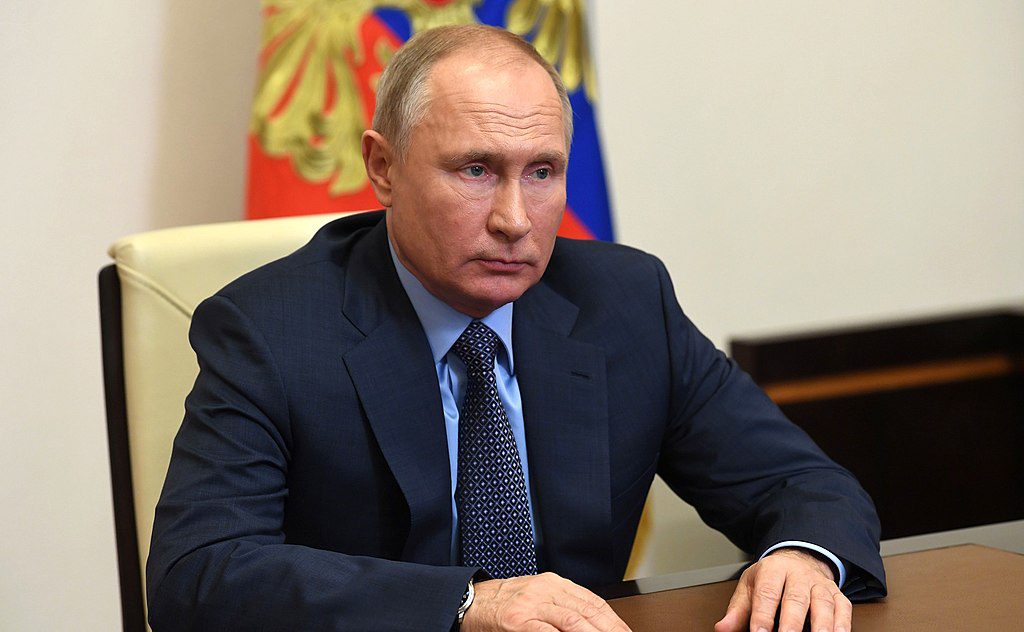
On September 21st, Russian President Vladimir Putin announced Russia’s first partial mobilization since World War II, thus calling up 300,000 extra reservists to aid in the war efforts surrounding the ‘special military operation’ in Ukraine. Putin also directed a clear message at the West, which he accused of “nuclear blackmail,” saying that “if the territorial integrity of our country is threatened, we will without a doubt use all available means to protect Russia and our people—this is not a bluff.”
In his televised address to the nation, the Russian president also expressed his support for the upcoming referendums that will be held in parts of Ukraine currently under Russian control, including the Donbas, Kherson, and Zaporizhzhia regions. The validity of these referendums, however, is being disputed by most western nations. Expectations are that the referendums will result in a Russian annexation of the regions in question.
Putin also accused the West of risking a “nuclear catastrophe” by allowing Ukraine to shell the nuclear power plant in Zaporizhzhia, which is currently under Russian control. This, too, is disputed by Ukrainian officials and the West, who hold Russia responsible for these attacks.
“In its aggressive anti-Russian policy, the West has crossed every line,” said Putin, adding that “those who are trying to blackmail us with nuclear weapons should know that the wind can change in their direction.” He referred to “statements by high-ranking representatives of leading NATO countries” that implied the “possibility and admissibility” of using nuclear weapons against Russia. Putin reminded the West that Russia, too, has such weapons of mass destruction and that Russia would use all the means at its disposal to defend its “territorial integrity.” This statement may turn out to be of renewed interest if the referendums in the occupied parts of Ukraine lead to an annexation by Russia, which may give rise to a reinterpretation of the continued fighting in those regions as an attack on Russian territory, rather than part of the ‘special military operation’ on Ukrainian soil.
The partial mobilization will result in several hundred thousand reservists being drafted, most of which have allegedly prior military experience. Untrained recruits are to receive military training first, as announced by Russian Defense Minister Sergei Shoigu.
According to the Associated Press:
Despite Russia’s harsh laws against criticizing the military and the war, protesters outraged by the mobilization overcame their fear of arrest to stage protests in cities across the country. Nearly 1,200 Russians were arrested in anti-war demonstrations in cities including Moscow and St. Petersburg, according to the independent Russian human rights group OVD-Info.
Over 1,300 people were detained in Russia after rare anti-war protests were held in the wake of President Vladimir Putin's announcement of a military mobilization.
— Radio Free Europe/Radio Liberty (@RFERL) September 22, 2022
The protests in Moscow and St. Petersburg included many women who chanted "No to war!" and "No to mobilization!" pic.twitter.com/j8OBGPMjfl
Flights leaving Russia filled up quickly on Wednesday, as people scrambled to leave the country. Prices for remaining one-way flights skyrocketed, according to the AP.
Flights departing Moscow and St. Petersburg today. The @AP is reporting international flights departing Russia have either sold out or skyrocketed in price after Putin announced a mobilization of reservists.
— Flightradar24 (@flightradar24) September 21, 2022
Search SVO, VKO, DME for Moscow airports and LED for St. Petersburg. pic.twitter.com/LV2PrkwPD9
NATO’s secretary general Jens Stoltenberg called Putin’s statement “dangerous and reckless rhetoric” NATO would not partake in. “The only way to end this war is to prove that President Putin will not win on the battlefield. When he realizes that, he has to sit down and negotiate a reasonable agreement with Ukraine,” said Stoltenberg.
French President Macron took a harsher stance, calling upon the international community to “put maximum pressure on President Putin to stop this war that no longer makes any sense,” as the decisions of the Russian president will “serve to isolate Russia further.” German Chancellor Scholz, while referring to the nuclear threats as “unacceptable” and “an act of desperation,” stuck to his “balanced, decisive course in supporting Ukraine and preventing an escalation of the war beyond that between Russia and Ukraine.”
